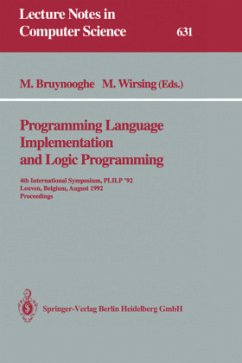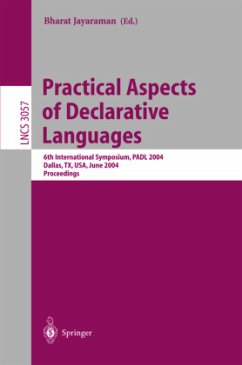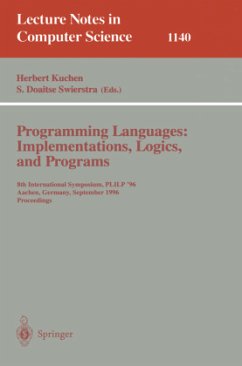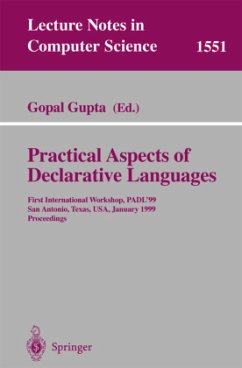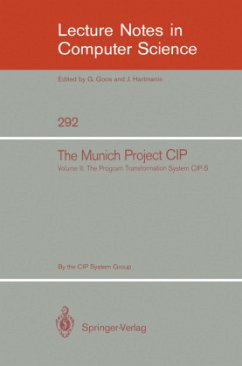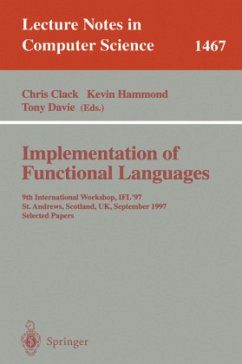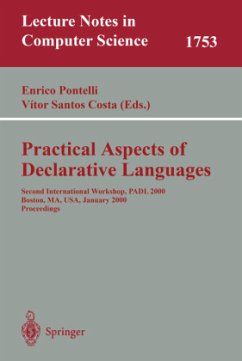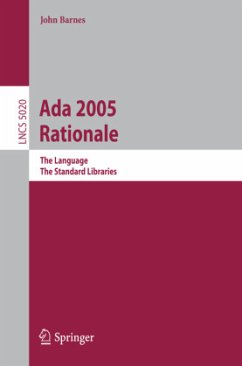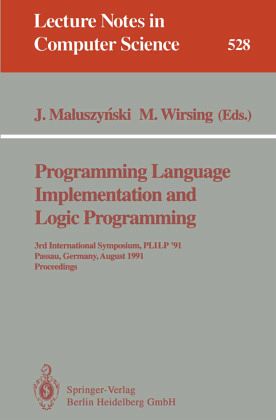
Programming Language Implementation and Logic Programming
3rd International Symposium, PLILP '91, Passau, Germany, August 26-28, 1991. Proceedings
Mitarbeit: Maluszynski, Jan; Wirsing, Martin
Versandkostenfrei!
Versandfertig in 1-2 Wochen
39,99 €
inkl. MwSt.

PAYBACK Punkte
20 °P sammeln!
This volume contains the papers which have been accepted forpresentation atthe Third International Symposium onProgramming Language Implementation andLogic Programming(PLILP '91) held in Passau, Germany, August 26-28, 1991. Theaim of the symposium was to explore new declarativeconcepts, methods and techniques relevant for theimplementation of all kinds of programming languages,whether algorithmic or declarative ones. The intention wasto gather researchers from the fields of algorithmicprogramming languages as well as logic, functional andobject-oriented programming. This volume contains the tw...
This volume contains the papers which have been accepted forpresentation atthe Third International Symposium onProgramming Language Implementation andLogic Programming(PLILP '91) held in Passau, Germany, August 26-28, 1991. Theaim of the symposium was to explore new declarativeconcepts, methods and techniques relevant for theimplementation of all kinds of programming languages,whether algorithmic or declarative ones. The intention wasto gather researchers from the fields of algorithmicprogramming languages as well as logic, functional andobject-oriented programming. This volume contains the twoinvited talks given at the symposium by H. Ait-Kaci andD.B. MacQueen, 32 selected papers, and abstracts of severalsystem demonstrations. The proceedings of PLILP '88 andPLILP '90 are available as Lecture Notes in Computer ScienceVolumes 348 and 456.






